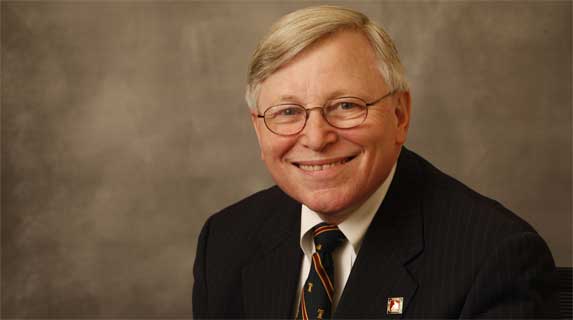I often get brought in by other lawyers to be the constitutional scholar, handling the more esoteric areas of con law. And though it’s an ever evolving, living document, I would like to think of myself as a Constitutional Law Scholar. I work at it. I spend time studying, analyzing, teaching, and trying cases.
I was quoted in the Maryland Daily Record as saying, “We cannot expect the cops to be constitutional scholars.” It was related to the Agurs decision of last week. I see that it was very quotable, though a good sound bite was not my intention. In fact, I do not love how it sounds.
I spent two days in Virginia last December at the James Madison Montpelier Center helping to put on a presentation to police chiefs. My colleague Mike Myerson – a constitutional scholar himself – and I, along with Tim Longo, discussed the ever evolving law of the constitution as it relates to the cops. (Tim Longo has since become a news regular as the police chief in Charlottesville and head of the Yeardley Love murder investigation.)
One of the major ideas of the Montpelier Virginia conference was teaching Chiefs of Police how to relay job related constitutionality to their departments. Because, No, we cannot expect police to be constitutional scholars. It’s not a knock on cops. I don’t think we can expect all lawyers to be constitutional scholars.
As a follow-up to my potentially broadly applied quote, I wanted to do an analysis of the constitutionality of police conduct. In determining the constitutionality of police conduct, the Supreme Court has adopted multiple themes:
- Defer to trial judges, who have the benefit of evaluating the testimony and credibility of the police officer witness, defendant witness, and other witnesses
- View the conduct from the perspective of a well-trained law enforcement officer
- Determine whether police conduct is “reasonable” under a “totality of the circumstances”
- Create an easy-to-understand “bright line” rule for measurement of police conduct.
As to (1), the Supreme Court defers heavily to state trial judges, who usually defer heavily to police officers. The Court believes that those individuals — in the streets and on the job — can do a better job than the Supreme Court. As to (2), the Supreme Court recognizes that a well-trained police officer may bring expertise and experience to the situation, permitting action not permitted by those of us who lack such training. As to (3), the Supreme Court recognizes that these cases cannot be “Monday-morning-quarterbacked.” This means that the conduct should be evaluated under the totality of the circumstances. Was the conduct reasonable when measured from the perspective of a reasonable officer at that time and in that place?
As to (4), the Supreme Court has recognized that police frequently encounter dangerous and rapidly evolving situations. In response, the Court has often created what it calls a “bright line” rule. Such a rule might not be correct 100% of the time, but it is correct in the vast majority of cases, such that a “one-size-fits-all” rule – correct in almost all cases – make the police job easier and more certain. A case that I argued in the Supreme Court demonstrates this point. In Maryland v. Wilson, known as the “passenger stop” case, the trial judge found that, because there was no evidence of officer safety and no evidence of passenger wrongdoing, the police could not require the passenger to exit the vehicle. In that traffic stop case, the police had no probable cause or even reasonable suspicion of drugs. When the police required the passenger to exit the vehicle, drugs fell to the ground from his pant leg. After the trial judge suppressed the evidence, the State appealed all the way to the Supreme Court. That Court reversed, 7-to-2, in favor of the State, holding that the intrusion was small, and the police need a bright line. The bright line was that the police may, without more, require all passengers of validly stopped vehicles to exit the vehicle.
Of course, the day after Wilson was decided, the cops were, in fact, deemed to know it. So, perhaps, I was wrong. Maybe we should expect cops to be constitutional scholars.

{ 1 trackback }
Comments on this entry are closed.